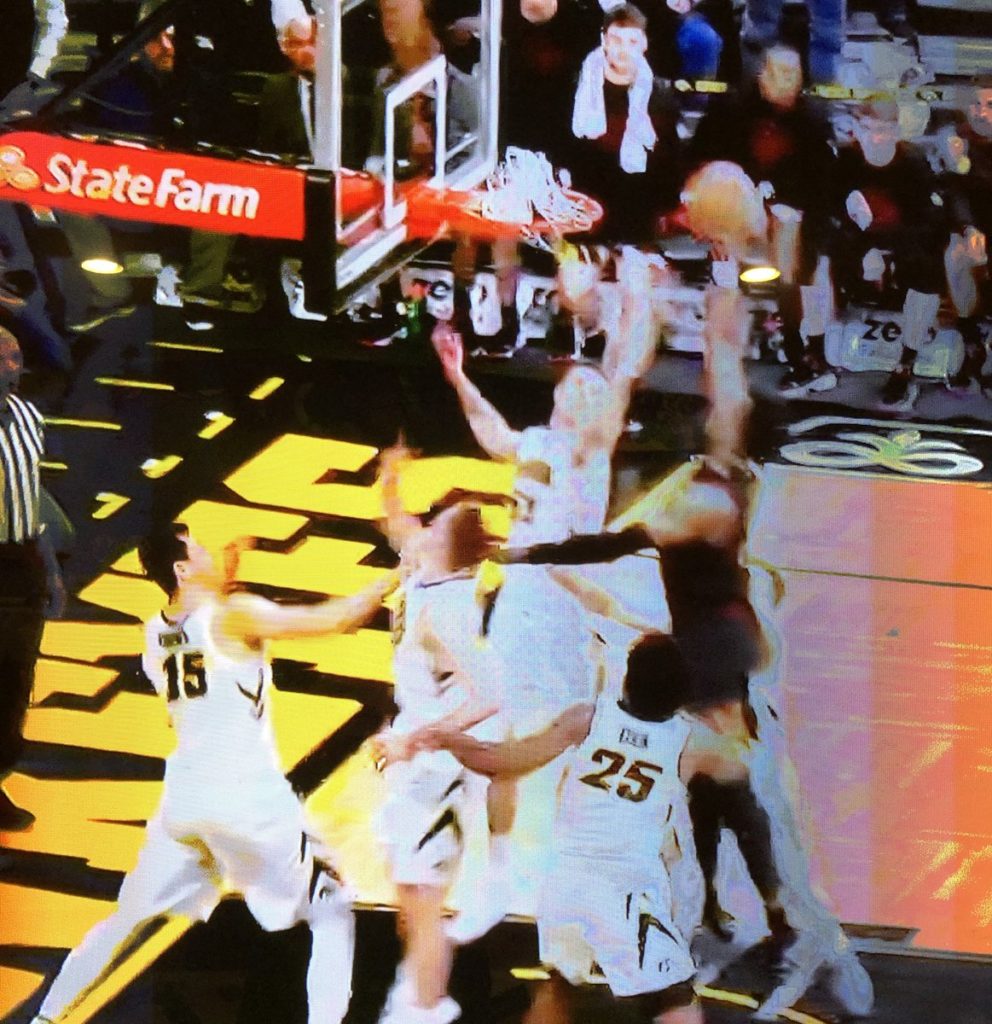
There’s a curious trick of the mind that Americans are in a mad dash to play upon themselves: It’s called Trust Me, Simon Really Says. You don’t have to be Wittgenstein to play this language game. I’ll give you an example ripped straight from your HuffPo ticker.
You’re watching college basketball, because you’re an American with exquisite taste. It’s Maryland at Iowa with seven seconds to the buzzer. You’re sinking tooth into bone on wing number twelve when number-23 power forward Bruno Fernando sinks ball into basket on the game-winning point. Terps fans explode, Hawkeyes fans deflate. And yet Iowa’s players aren’t the biggest losers of the night.
Why?
Because the Hawkeyes play-by-play radio man, Gary Dolphin, had the temerity to pay a compliment to the visiting team: “Twelve 3s on 22 made baskets. That’s some pretty good long-range shooting,” Dolphin says. “And then Fernando was King Kong at the end of the game.”
In the game of Simon Says, where precision and close listening are musts, you would have heard: “Even with five players besieging Bruno Fernando, he still ascended to the basket for an earthshaking dunk. It was evocative of King Kong, besieged by swarming fighter planes, ascending to the top of the Empire State Building.” Compliments of Gary Dolphin, Poet Laureate of the NCAA.
You’re playing that other game, though. Trust Me, Simon Really Said: “Fernando is a dangerous black man. Also, miscegenation should be a crime. And while we’re at it, Ralph Northam did nothing wrong.”
You hear the words crackle over the airwaves. Wing number thirteen drops from your hands into beer number eight. We could build a pyramid with the number of bricks that were shat.
This is what you heard, because in this game you cannot hear otherwise. Your role is to take offense on the part of the victim whether the victim claims this victim status for himself or not. Moreover, the offense thus committed, the unaware victim is encouraged to adopt the posture of having been offended by those reporting to him—perhaps to his surprise, perhaps not—that he is indeed a victim.
“But, but, Simon said this.”
Trust me, Simon really said this.
This game is a double-dip deception that is more harmful than the imagined offenses it uses to perpetuate itself. First, this game relegates every member of the public and every instance of human interaction to the status of poker chips. At any time, you can be laid on the table for undue public embarrassment or worse. Second, the game cheapens the status of genuine victims, who deserve sympathy, remedy, aid.
Besides destroying context, this game auctions off reality to whoever’s in the highest dudgeon. It empowers observers—and it is always the observers and never the subjects that are enraged—to substitute what they sensed for what they saw. It’s like Berkeley without the bishop’s hat: It was thought, therefore it was.
